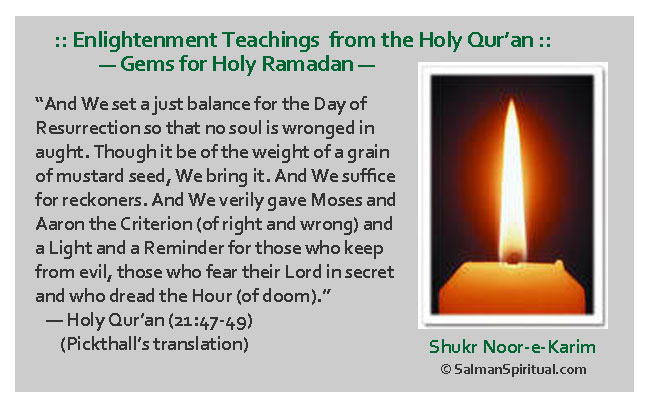

"Lo! the righteous verily are in delight, On couches, gazing, Thou wilt know in their faces the radiance of delight." — Holy Qur'an 83:22-24
:: Trait No. 10: Dimensions of the External Knowledge ::
Sunday,
Oct. 5, 2025
Bismillahir Rahmanir Rahim
In the name of Allah, the Most Beneficent, the Most Merciful.
Ya Ali Madad and Ramadan Mubarak. This post consists of five parts
Part 1: Enlightenment Teachings from the Holy Qu'ran

Part 2: Excerpts from 'A Code of Conduct—A Treatise of the Etiquette of the Fatimid Ismaili Mission'
In 'al-Risāla al-mūjaza al-kāfiya fī of Ahmad b.Ibrāhīm al-Naysbūrī has written the following gem:
"[§13] The qualifications for the da'wa are based on three things: on knowledge; on God-fearing piety and on governance."
"[§14] The knowledge is divided into two parts: one of which is knowledge of the external, and the other [is knowledge] of the internal. The external has five divisions. One is the science of legal understanding and rulings on the basis of which people are sustained, and religion and the world preserved. It is the foundation of both religion and the da'wa. The second is the science of hadîth, historical reports, narrative accounts, and chains of transmission from the Prophet and the imams. Through it, religion is preserved and the law upheld through the retention of these reports and narrative accounts; they are basis for legal understanding. The third is the science of the Qur'an, its interpretation and explanation, knowledge of the fixed and ambiguous in it, that which is abrogated and what is abrogated, and the command and the prohibition. The fourth is the science of preaching, of memorials and exemplary stories. God, the Exalted, said to His Prophet: 'Summon to the way of your Lord with wisdom and fine exhortation.'22 Exhortation refines the hearts of the people and awakens in them a desire for the afterlife and for religion and withdrawal from this world. The fifth is the science of disputation and discussion by which to encounter, in matters of faith, the heretics, deviants, the philosophers, those who uphold the eternity of the world and the various adherents of false schools of doctrine. Each type has various excellences and they will, if possible, be mentioned at the proper place for them, God willing."
(Source: Klemm, V. and Walker, P. E., A Code of Conduct—A Treatise of the Etiquette of the Fatimid Ismaili Mission, p.42)
Footnotes
22. Qur'an, 16:125
Part 3: Dhikr Tasbi
Let us perform the dhikr of Yâ Wali, Yâ Karim to appreciate the Lord's protection and generosity upon us.
Bismillahir Rahmanir Rahim
In the name of Allah, the Most Beneficent, the Most Merciful
Ya Wali, Ya Karim
O Mowla! You are our Protecting Associate
and You are the Bountiful One
Al-hamdu lillahi rabbil 'alamin.
Praise be to Allah, the Lord of the worlds!
Part 4. Angelic Salwat
Let us recite angelic salwats to invoke Divine grace and mercy.
Bismillahir Rahmanir Rahim
In the name of Allah, the Most Beneficent, the Most Merciful
Allâhumâ salli alâ Muhammadin wa âle Muhammad:
O Allah! Bestow Peace on and through Muhammad and his Descendants
or
Al-hamdu lillahi rabbil 'alamin.
Praise be to Allah, the Lord of the worlds!
Part 5. Ardent Global Prayers
O Noor Mowlana Hazar Imam: bless the global Jamat with spiritual and luminous tayid (help) to advance materially, spiritually and intellectually; and create sunshine in our hearts and bless all of us with the inner vision of the Truth.
Haizinda — Qayampaya
(Our Present Imam is Living and His NOOR is Eternal)
Traits of an Ismaili Dai